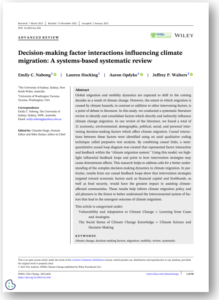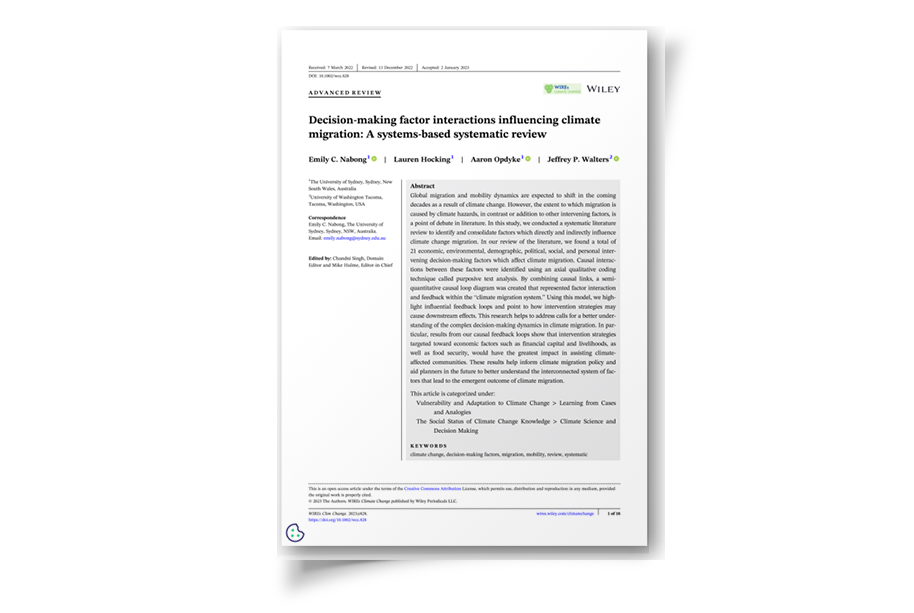Abstract
Global migration and mobility dynamics are expected to shift in the coming decades as a result of climate change. However, the extent to which migration is caused by climate hazards, in contrast or addition to other intervening factors, is a point of debate in literature. In this study, we conducted a systematic literature review to identify and consolidate factors which directly and indirectly influence climate change migration. In our review of the literature, we found a total of 21 economic, environmental, demographic, political, social, and personal intervening decision-making factors which affect climate migration. Causal interactions between these factors were identified using an axial qualitative coding technique called purposive text analysis. By combining causal links, a semi-quantitative causal loop diagram was created that represented factor interaction and feedback within the “climate migration system.” Using this model, we highlight influential feedback loops and point to how intervention strategies may cause downstream effects. This research helps to address calls for a better understanding of the complex decision-making dynamics in climate migration. In particular, results from our causal feedback loops show that intervention strategies targeted toward economic factors such as financial capital and livelihoods, as well as food security, would have the greatest impact in assisting climate-affected communities. These results help inform climate migration policy and aid planners in the future to better understand the interconnected system of factors that lead to the emergent outcome of climate migration.
Potential Industry Impact
- The use of systems thinking, and causal loop diagramming, is a new approach to analyzing and displaying the known interconnection and complexities in the field of climate migration.
- The need for policy and practice to be made on “Economic” factors, such as financial capital and livelihood to assist climate-affected communities.

Authors:
Emily C. Nabong, Lauren Hocking, Aaron Opdyke, Jeffrey P. Walters
Journal:
WIREs Climate Change, e828. (2023, 24 January)
Read:
https://doi.org/10.1002/wcc.828


